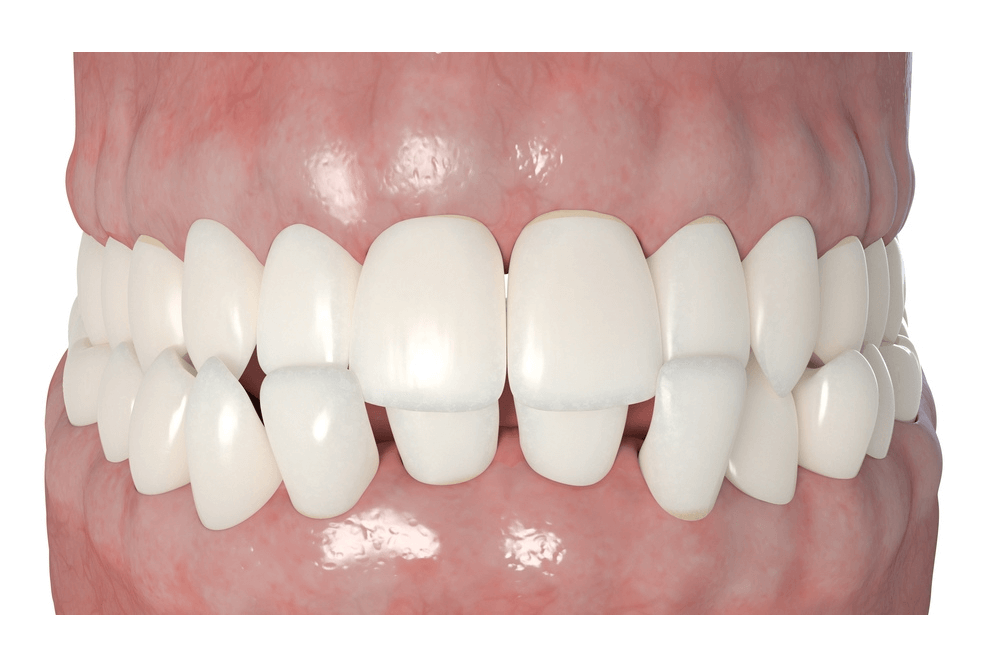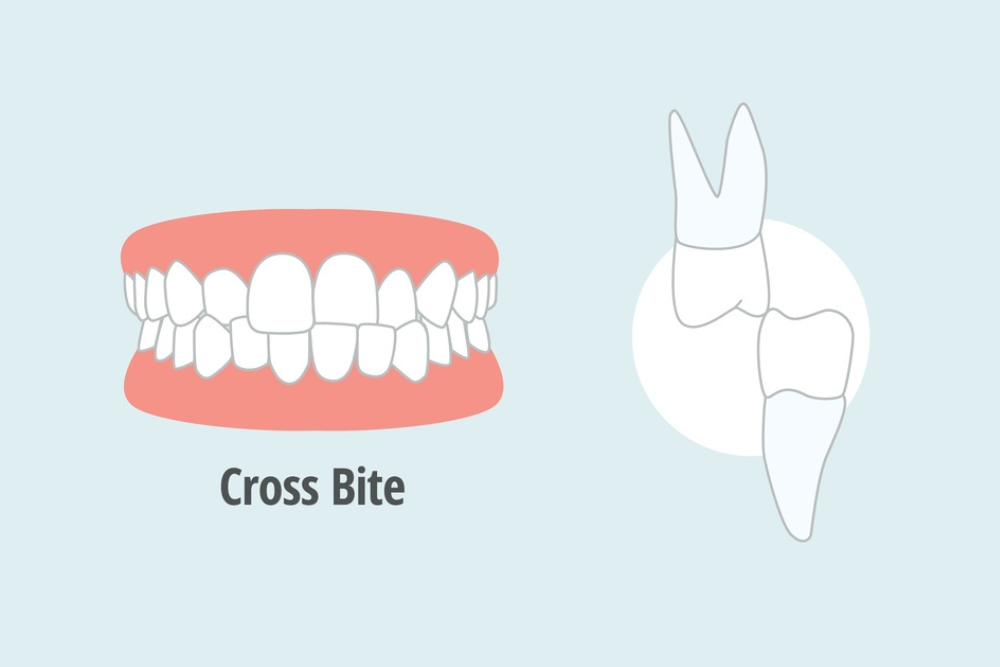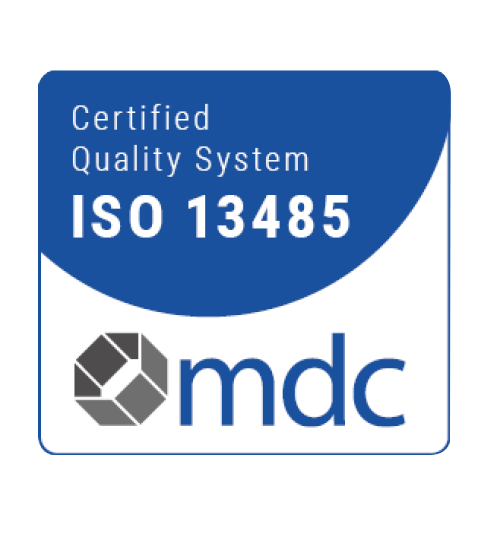
If your upper and lower teeth don’t align while chewing, you are probably suffering from a crossbite. It can severely impact your dental health condition and might include jaw pain, uneven wear, and chewing difficulties. Fortunately, clear aligners have the perfect solution for a non-invasive and discreet therapy option for fixing crossbites. So let’s explore the answer to the question: can aligners fix crossbite in this guide?
What is a Crossbite?
When your jaw closes the upper teeth inside position creates a condition known as crossbite. One or several teeth can experience this condition which dentists classify as:
- One type of crossbite exists as anterior crossbite when your front upper teeth rest behind your lower front teeth.
- A posterior crossbite exists when your back upper teeth occupy a position behind your lower back teeth during biting.
What Causes a Crossbite?
- Heredity stands as the main reason which generates crossbite among individuals. Children typically acquire dental problems similar to those affecting their parents who have misaligned teeth.
- An abnormal growth pattern of jaws affects the development resulting in misalignment which causes a crossbite. The improper growth between jaws creates problems with how teeth fit against each other.
- A crossbite occurs when baby teeth fail to fall out at their natural time due to which adult teeth experience improper eruption.
- Thumb sucking along with extended pacifier use might affect jaw development because it pushes the upper front teeth toward the inside or the lower teeth move toward the outside creating dental misalignment.
- Recurring mouth breathing from nose allergies or nasal congestion episodes will affect jaw development which could produce a crossbite condition.
- The practice of incorrect swallowing and tongue thrusting habits which involve pushing the tongue toward the front teeth creates a path toward the development of crossbite problems.
Use of Retainers for Crossbite
The new retainer may feel tight at first but this is an expected sensation. Wearing the retainer assists in maintaining the position of your teeth following modern orthodontic procedures. The supporting bone underneath newly aligned teeth requires healing time before it adapts to its new position while the retainer maintains its position. Wearing your retainer regularly will prevent tooth displacement that would ultimately render your orthodontic procedure useless as well as expensive. \
Can Aligners Fix Crossbite?
Yes, aligners can fix crossbites in many cases. Your teeth move progressively into position through the aligner treatment although tightness may occur during the beginning. Follow the day-to-day wearing directions to achieve stable progress and minimize early inconvenience.
Contact your dentist for a checkup after experiencing intense pain when putting on the aligners or if they feel inappropriate during use. The success of attaining proper tooth alignment requires potential adjustments or more aligner sets to be developed for the process.
Benefits of Using Aligners for Crossbite
If you’re asking if, can aligners fix Crossbite effectively, you’ll be happy to know that they offer multiple benefits:
- These devices offer a discreet appearance since they work as a better solution than traditional braces for adults and teenagers seeking a minimal treatment option.
- People benefit from wearing clear dental appliances because their smooth plastic construction avoids the irritations that metal braces generate.
- Patients can take out these products without trouble during their oral routines of cleaning teeth and eating and drinking to maintain proper oral hygiene practices.
- The treatment time for certain dental conditions ranges between six months to an appropriate duration based on the severity.
Clear Aligners’ Efficiency in Treating Crossbite
Clear aligners have been shown to be effective in treating a variety of orthodontic problems, including crossbite. According to studies, minor to moderate occurrences of crossbite can be successfully treated using clear aligner therapy. Orthognathic surgery is one further technique that may be necessary for severe crossbites.
Even though transparent aligners have many advantages, not everyone can profit from them, especially if they have complicated dental problems or irregularities in their jaws.
How Long Does It Take to Fix a Crossbite with Aligners?

Every case is different. However, most aligners can fix crossbite in 6 to 18 months. However, the exact duration depends on factors like the complexity of the misalignment. Moreover, it depends on how well you follow your treatment plan.
When looking for alternative options, you may also want to know how long it takes for braces to straighten teeth. Traditional braces can require a duration from 18 months to 3 years, and it depends on the severity of the issue. Conversely, aligners frequently function more quickly for mild to severe crossbite.
Choosing the Best Teeth Aligners for Crossbite
Selecting the best dental clear aligners for your needs is necessary because not all aligners are equal. Some of the leading brands use advanced 3D scanning technology, including FirstClass Aligners, to provide personalized treatment programs. To find out which aligners are ideal for your particular situation, it’s better to speak with an orthodontist.
What Happens After Crossbite Treatment?
Your orthodontist will probably advise using a retainer to preserve your results once your crossbite has been fixed. There are various kinds of retainers, such as:
- Hawley retainers: These are long-lasting and adjustable, and they are made of metal and acrylic.
- Clear retainers are custom-molded to your teeth and are almost undetectable, much like aligners.
- Unchangeable retainers A little wire is attached to the back of your teeth for stability over time.
Your orthodontist will help you choose the right type of retainer to preserve your new smile.
Resolving a Crossbite and Additional Dental Issues
Gaps between teeth are among the additional dental issues that many persons with crossbites also face. If that is you, you might be wondering if aligners can also close gaps in your teeth. Yes, that is the response! Aligners can fix biting problems and close minor to moderate gaps.
Considerations and Precautions
Success in crossbite treatment through clear aligners heavily depends on applicable considerations together with proper precautions. These are the important points for patients to understand:
- Certain lifestyle habits like smoking or chewing gum can negatively impact the treatment process of clear aligners when proper results are at stake. Patients need to be aware of lifestyle habits that influence treatment results because their dental provider will offer the necessary recommendations.
- The dental provider needs to schedule regular visits to monitor the treatment process because they will update the treatment plan when needed and verify the effectiveness of aligner therapy in addressing crossbite issues.
- Patients require modified diet patterns while undergoing clear aligner therapy above all in the time temporarily after treatment starts. The progression of treatment remains smooth when patients choose to avoid eating hard sticky or chewy foods since these foods can create harm to aligners.
- Users of clear aligners occasionally need to deal with minor changes in their speaking abilities and pronunciation differences that occur during aligner use. Patients normally experience minor speech changes but these issues resolve as their mouth adapts to the wear of aligners. Reading aloud along with speaking practice helps speed up the time needed to adapt to the change.
Maintaining Oral Health During Treatment
When compared to braces patients can more easily sustain proper oral hygiene practices because of their aligner treatment. The following dental care directions will help you maintain healthy teeth throughout your treatment period:
- Regular tooth brushing following meals should become a habit to stop food debris from hiding below your aligners.
- Daily cleaning between teeth requires floss or a water flosser.
- You should regularly rinse your aligners or retainers to stop the growth of bacteria.
- Sugary as well as acidic drinks should be avoided because they create an environment where cavities can develop.
Final Thoughts
So, can aligners fix crossbite? Absolutely! Aligners function wonderfully as non-orthodontic appliances for treating simple and moderately severe dental misalignments. Seeking an orthodontist for consultation is the primary step before getting aligners to treat your crossbite so they can create a treatment plan that matches your specific requirements.
The treatment of crossbites through aligners easily handles different dental issues including gaps and overcrowded teeth. The combination of proper oral hygiene and the correct aligner treatment leads to a speedy achievement of both alignment and dental health.
The time to start looking at your smile transformation options has arrived so do it right now.







